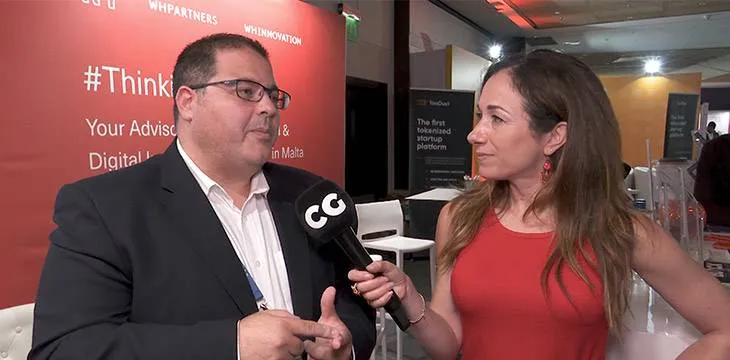|
Getting your Trinity Audio player ready...
|
When he joined Maltese law firm WH Partner, Joseph Borg was solely focused on the gaming industry. However, in time, he developed an interest in blockchain technology and started a small department within the firm to cater to this emerging technology. His small team has since grown, and in an interview with CoinGeek’s Becky Liggero, Borg explains why he believes that blockchain is the future for the gaming industry.
“Blockchain will bring a number of advantages to gaming operators and users, but also to regulators if they play their cards well,” he stated. “The best thing about blockchain is that it brings a lot of transparency, and that helps everyone at the end of the day.”
For gaming operators, the transparency lets all the stakeholders know that nothing illegal is being done in the background. This fosters trust in the ecosystem, which leads to the growth of business for the operators.
The use of smart contracts will also revolutionize how the players’ money is stored and used by the gaming operators. “With smart contracts and cryptocurrencies, you have the possibility of allowing the players to deposit the money into a smart contract and every time the money is used for the game, all the winnings are returned back to the player,” Borg explained.
For regulators, blockchain gives them better oversight and allows them to be up to date with everything that’s taking place in the industry.
WH Partners has worked with plenty of ICO projects, and while some have cited 2019 as the beginning of the end of this fundraising method, Borg remains a bit more positive. To start with, most of the ICOs he has been involved in are now ‘projects that are shaping up.’
Still, he advises entrepreneurs to be in tune with the times, stating that the industry is maturing and those who seek to raise money have a bit more responsibility now.
It’s true, today you can do an ICO anonymously. But it’s not smart to do that. It’s smart to collect all the KYC, because eventually you’ll encounter problems while dealing with institutional players like the banks and insurance companies. The industry is maturing.

 06-30-2025
06-30-2025 





